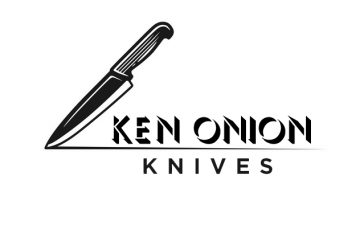
If you have ever wondered whether or not a knife made out of Damascus steel is good for a knife, there are a couple of things to consider. These include the material’s durability, stain-resistance, and maintenance.
Carbon steel vs Damascus steel
Damascus steel and carbon steel are two types of knife blades that are commonly seen in the knife market. These types of knives are usually favored by some knife enthusiasts. Although both are good knives, each has its own advantages and disadvantages.
If you are considering purchasing a new knife, you may want to learn more about these materials. They are durable and easy to maintain. Carbon steel is more affordable than stainless steel. However, it is not as attractive. It is also less resistant to rust and chipping.
Carbon steel is made by mixing iron with carbon. The more carbon that is present in the steel, the harder it is. In addition, the hardness of the steel affects edge retention.
Some types of carbon steel are less prone to corrosion than other alloys. This means they can be used in areas with high humidity.
However, this type of steel is less durable and less sharp than Damascus steel. Also, it is not as durable as stainless steel.
Durability
The durability of Damascus steel for a knife depends on a number of factors. First, the quality of the steel. Secondly, the manufacturing process. And finally, the storage condition.
Stainless steel is the most common choice for Damascus knives, and the blades are renowned for their rust-resistant qualities. They are also known to last decades if properly cared for. Nevertheless, it is important to understand that they do not provide the same level of durability as carbon steel.
Carbon steel is a more durable material, and is easier to maintain. However, it can be more brittle. In addition, a high carbon content can make the edge of the knife prone to chipping. This can be especially problematic when cutting on a hard surface.
If you want to keep your Damascus blade in excellent condition, you need to clean it thoroughly and avoid storing it in an unclean environment. You should also use oil to protect the blade. Also, don’t forget to keep it dry when you are storing it.
Stain-resistance
A Damascus steel knife is a special kind of knife that is known for its strength and durability. It is made with a combination of layers of high carbon and stainless steel. The inner core of the knife is high carbon steel.
Damascus steel is considered to be one of the hardest steels in the world. Some people call it the ultimate tactical tool. However, it is more expensive than other knives.
Whether you choose to use a Damascus steel or a stainless steel knife depends on what you intend to use the knife for. Carbon steel is usually stronger and more durable than stainless steel. If you live in an area with lots of moisture, however, a stain-resistant steel is a better choice.
In addition to its durability, the blade also holds its edge extremely well. Since it is a hard material, a Damascus steel knife will take longer to dull. This makes it a good option for those who prefer to use knives frequently.
Maintenance
Whether you have just bought a new Damascus steel knife, or you have been using it for years, there are certain tips and tricks you should know about. If you follow these steps, you can keep your knife looking beautiful.
First, keep the blade dry and clean. Use a soft cloth or microfiber to wipe the blade. Don’t rub it with rough materials, as they can damage the pattern.
Secondly, use a wax to keep the blade from rusting. You can get a specialty wax that works well for Damascus steel knives. Alternatively, you can use petroleum jelly. But, it is important to remember to wipe it off after each use.
Finally, make sure that you don’t store your Damascus steel knives in damp places. They are prone to rusting in humid environments. Also, you should not store them in leather sheaths. The absorbent nature of leather can rust the metal.
Lastly, you should never store your Damascus knife in the dishwasher. The acidity of the dishwasher can affect the metal.
